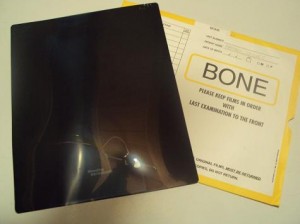Today I read 50 blog posts written by another family about their dad’s four month fight with cancer. He died last August at 63, a year younger than Nate. Although I never met this man, his daughter is married to my cousin’s son, so we do have a link.
As I read through John’s story, I felt an immediate bond with this total stranger because his battle had so much in common with ours. What appeared in every one of his posts was a report on his daily confrontation with leg swelling and pain. Multiple blood clots could not be removed because of surgical risk, and nothing alleviated this acute pain.
When I finished reading his story, my leg hurt, too. The day-in-day-out pounding of pain in the very same bodily spot over weeks of time produces an exhaustion and discouragement difficult to overcome. One of my daughter’s friends battles constant head pain, and after two years of never being without it, she said she wished someone would just cut off her head. She was only half joking.
My thoughts wandered back to Nate’s ordeal with pain. Until the last week of his life, his greatest misery was always in his lower back. This was a group of non-life-threatening bone problems that tormented him with piercing pain that absolutely never let up, not for one minute. When a man with ferocious fast-growing tumors throughout his body voices his main complaint as back pain, it’s got to be excruciating.
As I thought about John and Nate with nearly unbearable pain pounding them every minute of every day, I felt awful. Did I sympathize enough with Nate? Did I have his pain on my mind continually? Did I remember to care for that pain with fresh ice packs as soon as the ones he was using got warm? Were there other ways I could have helped him? Was I impatient in my serving? Did he sense it?
As we grew closer to Nate’s death, my willingness to work hard for him increased. I became eager to please him in even tiny ways, and it was satisfying to do so. The question is, why wasn’t this true from the very beginning?
Tonight I’m realizing I could have done a much better job helping Nate, not just during his six weeks of cancer but during the 35 weeks of agonizing back pain before that. I could have done much more to show him love, and from this vantage point tonight, I feel badly. Why was it I could sympathize and serve tirelessly when I knew his time was short, but couldn’t summon up that kind of unfettered help when he had non-life-threatening pain?
We ought to be able to love our loved ones sacrificially at any time, not just when we know death is near. And it should be especially easy to help when we know the pain never goes away for the one who’s most important to us. I look back on 40 years of marriage and see plenty of self-centeredness on my part. It makes me feel even worse to realize Nate didn’t complain very often about his pain. Did I take advantage of this maturity by acting like a self-centered baby?
The trick in marriage is to figure this out from the get-go, not when time is waning. When I knew Nate’s life would soon end, I could cheerfully skip meals, live on four hours of sleep a night, forfeit showers. What would it have taken for me to eagerly surrender those same rights and many others not just when Nate was terminally ill or even when he had insufferable back pain, but also during our healthy years?
Jesus Christ was our perfect example of sacrificially loving others to-the-max. Because of my experience with Nate’s suffering and my often deficient serving, I’m increasingly impressed by Jesus and how he lived, how he loved. I have a better understanding of how hard it was for him not to self-pity or feel like he should have been served by others because of what he was about to do for them on the cross. Yet he never made that demand or any other.
Oh, how short I fall.
“All of you, clothe yourselves with humility toward one another, because God opposes the proud but gives grace to the humble.” (1 Peter 5:5)




